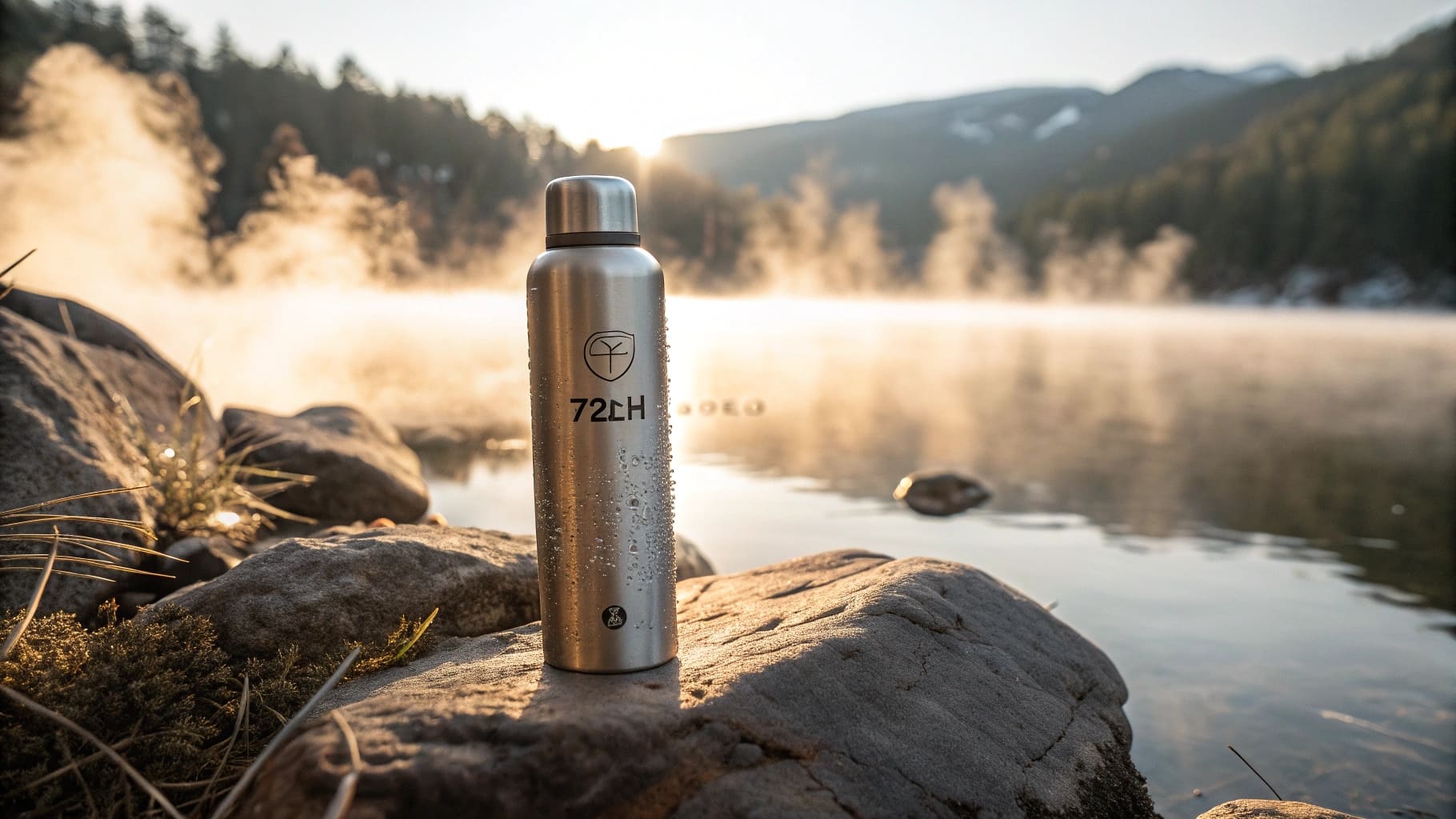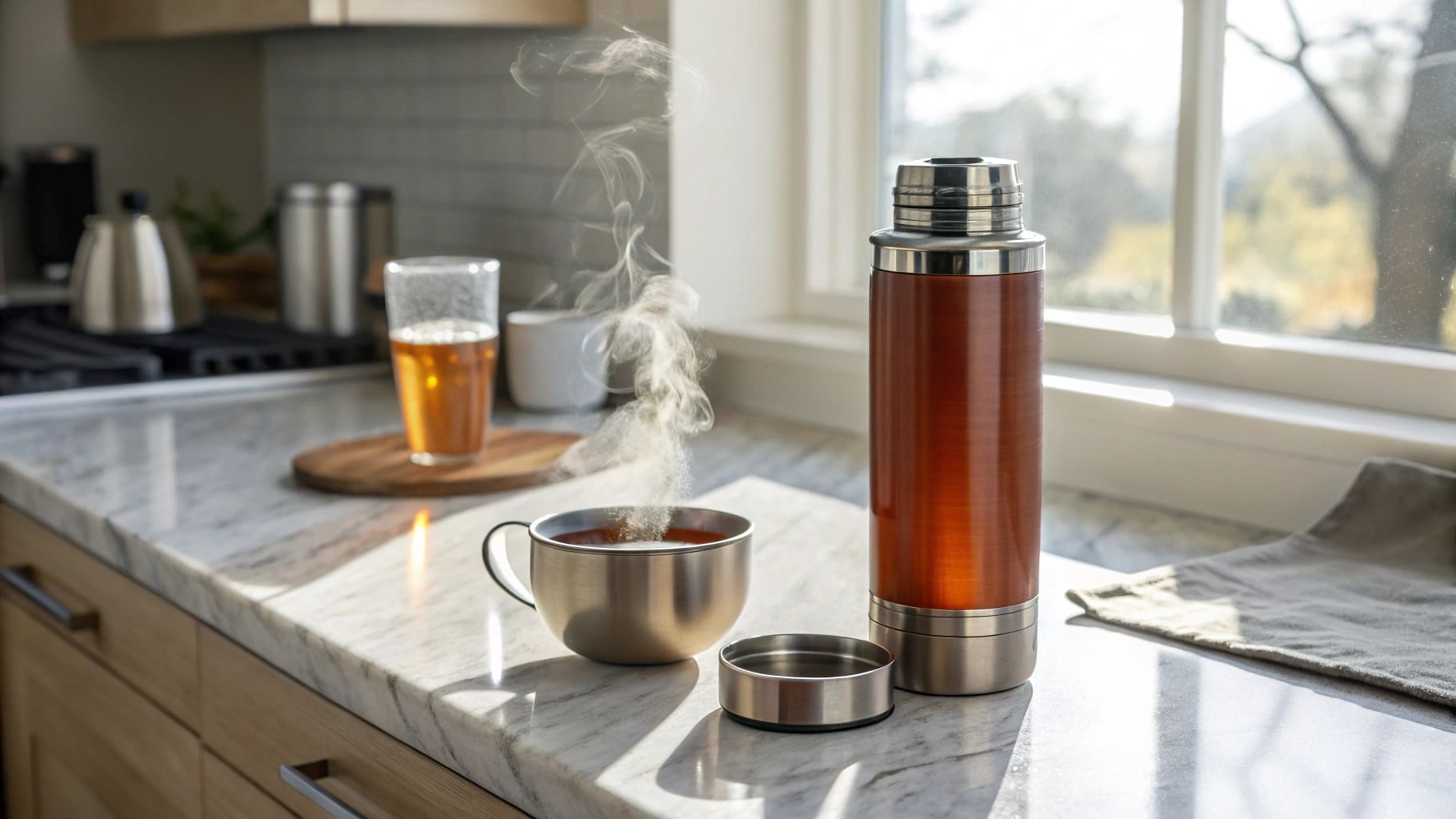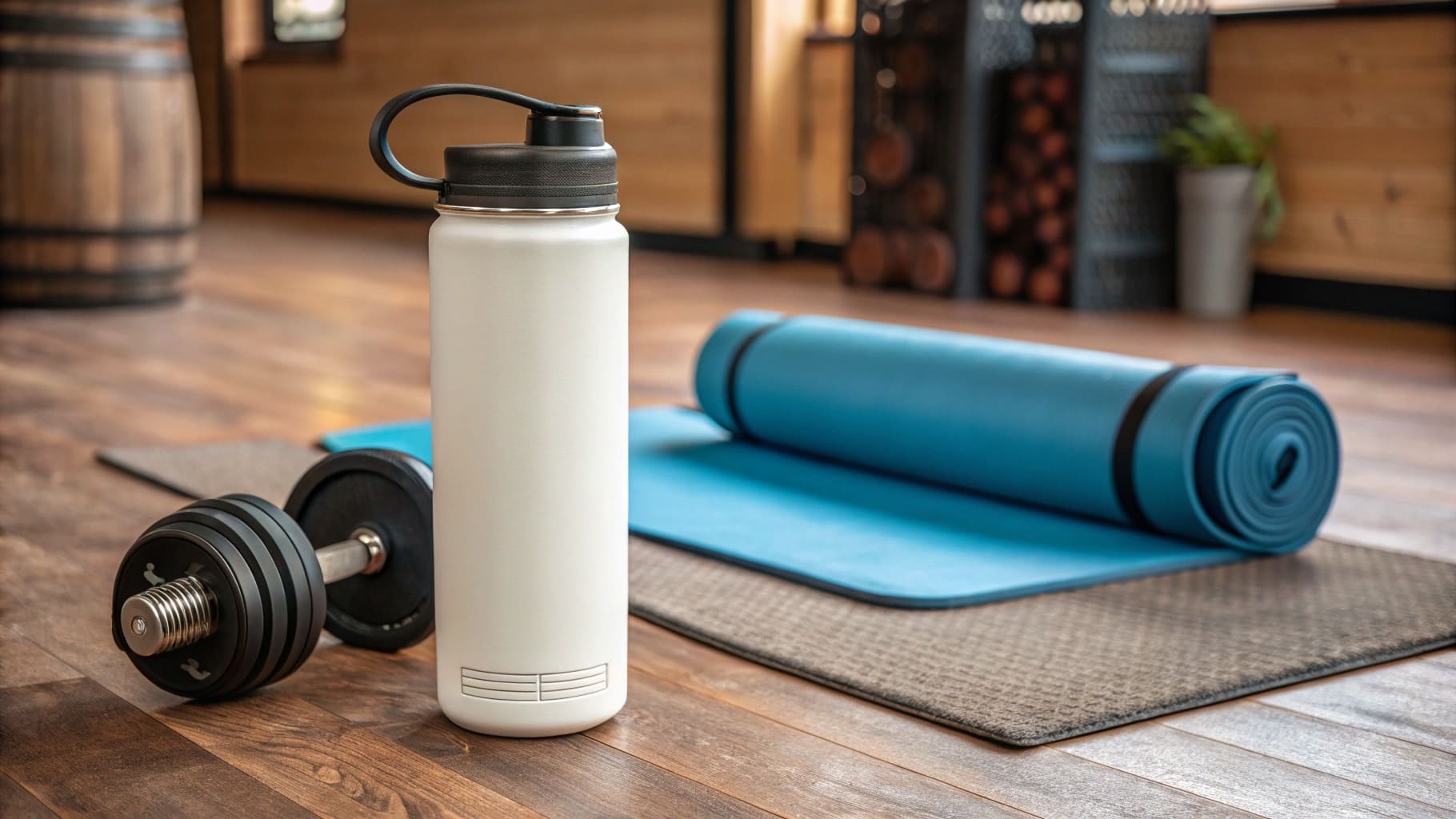Overwhelmed by bottle choices? Wrong material means bad taste, health risks, or breaks. I'll help you pick the best: stainless steel, glass, or plastic.
Stainless steel often wins. It's super durable, keeps drinks hot or cold, and is very safe. It balances all key features for a great reusable bottle.

Choosing the right bottle material is key, especially for business buyers. Let's dive deeper into the common options. We'll explore each one to help you pick wisely.
Are stainless steel water bottles better than plastic water bottles?
Plastic bottles raise safety concerns. They can leach chemicals and don't last. Is steel better? Let's compare them for your health and daily use.
Yes, stainless steel is generally better. It’s more durable, doesn't leach chemicals like some plastics, and keeps your water tasting pure. It's a safer, longer-lasting choice.

As someone who manufactures stainless steel bottles at Icobottle, I've seen the shift. Many clients, like Mark in Canada who buys for his distribution business, specifically ask for steel over plastic. There are very clear reasons for this preference.
Health and Safety Showdown
Plastic, even bottles labeled "BPA-free," can be a worry for many people. There's concern that other chemicals might transfer from the plastic into your drink. This is especially true if the liquid is hot or if the plastic bottle gets old and worn. Stainless steel, particularly the food-grade 304 type we use, is inert. This means it doesn't react with your drinks. So, you get pure taste and no nasty surprises. For procurement officers concerned about product safety for their customers, this is a huge plus.
Built to Last?
Think about how often plastic bottles get scratched, cloudy, or even crack. They are not always built for the long haul. Stainless steel is very tough. It might get a dent if you drop it hard, but it usually keeps working perfectly. This durability means fewer replacements. For businesses, this translates to better value and a more sustainable product offering, enhancing brand reputation.
Taste and Temperature
Have you ever noticed a slight plastic taste from a water bottle? That's common with some plastics. Stainless steel doesn't do that; it keeps your water tasting fresh. Also, if you want to keep drinks hot or cold, insulated stainless steel is fantastic. It can keep coffee hot for hours or water icy cold all day. Plastic bottles just can't match that performance.
Here's a quick comparison:
| Feature | Stainless Steel | Plastic |
|---|---|---|
| Chemical Safety | Excellent (inert) | Potential leaching (BPA, others) |
| Durability | Very High (dents, but functional) | Low to Medium (cracks, scratches) |
| Taste Purity | Excellent (no flavor transfer) | Can retain odors/flavors |
| Temp. Retention | Excellent (insulated) / Good (single-wall) | Poor |
| Eco-Impact | Highly recyclable, long-lasting | Lower recyclability, shorter life |
| Customization | Excellent for logos/colors | Good, but less premium feel |
For businesses aiming to offer a premium, safe, and durable product, stainless steel really stands out against plastic. It's what health-conscious and eco-aware consumers increasingly prefer.
What is the best bottle material to store water?
Want pure water without weird tastes? Some materials affect quality and safety. Let's explore which bottle material best keeps your water fresh and clean.
For storing water, glass and stainless steel are top choices. They don't leach chemicals or affect taste. Stainless steel adds durability, making it very practical for everyday use.

Purity is non-negotiable when storing water, especially for my clients who distribute these bottles across America and Europe. We focus heavily on material integrity at Icobottle because it directly impacts the end-user's experience.
Purity and Taste Matters
Glass is well-known for its purity. It's completely non-reactive, so water stored in glass tastes exactly like water, with no added flavors. High-quality, food-grade stainless steel, like the 304 or 316 grades we use, performs just as well. It doesn't impart any metallic taste and keeps water pure. Plastic, on the other hand, can sometimes give water an off-taste, particularly if the water has been stored for a long time or if the bottle is exposed to heat.
Safety in Storage
When it comes to safety from chemical leaching, both glass and stainless steel are excellent choices. Neither material will release harmful substances into your water, even over extended storage periods. This is a key consideration for health-conscious consumers. With plastic, there can be ongoing concerns about the potential for chemicals to leach into the water, even with types marketed as "safe." For a procurement officer like Mark, ensuring product safety is paramount to avoid any issues down the line.
Practicality for Daily Use and Shipping
This is where stainless steel truly has an advantage for water storage, especially from a B2B perspective. While glass offers great purity, its biggest downside is fragility. A single drop can lead to a shattered bottle. Imagine the challenges and costs associated with shipping thousands of glass bottles internationally – breakage rates can be a significant concern for importers. Stainless steel, however, is incredibly robust. It can withstand daily knocks and the rigors of shipping and handling. It’s the practical, reliable champion for storing water safely and conveniently.
| Aspect | Stainless Steel | Glass | Plastic (Food-Grade) |
|---|---|---|---|
| Taste Impact | None | None | Potential for slight taste |
| Leaching | No (food-grade) | No | Low risk, but possible |
| Durability | High (can dent) | Low (fragile, breaks easily) | Medium (can crack/warp) |
| Weight | Medium | Heavy | Light |
| Portability | Good | Fair (due to weight/fragility) | Excellent |
So, for the best combination of pure taste, assured safety, and practical durability for water storage, stainless steel is my top recommendation. It’s a material that businesses can confidently offer to their customers.
What is the best material for reusable cups?
Tired of disposable cups? Want a reusable cup that's safe, stylish, and works well? Many reusable options fall short. Let's find your perfect daily cup.
Stainless steel is excellent for reusable cups, especially insulated ones. It maintains temperature, is durable, easy to clean, and offers a premium feel for coffee or tea.

Reusable cups are everywhere now, and material choice is crucial for daily satisfaction. At Icobottle, our custom coffee mugs and tumblers are overwhelmingly made from stainless steel, and my B2B clients who order these for their brands appreciate why.
Keeping Your Drink Perfect
For coffee, tea, or even chilled beverages, temperature control is often a top priority. This is where insulated stainless steel truly shines. Double-walled vacuum-insulated stainless steel cups can keep coffee steaming hot for hours or iced drinks refreshingly cold, without condensation on the outside. Ceramic and glass cups, while traditional, lose heat or cold much more quickly. Many plastic reusable cups also offer poor insulation and some may not be suitable for very hot liquids due to concerns about warping or chemical stability.
Surviving Daily Use
A reusable cup becomes part of your daily routine, so it needs to be tough. Stainless steel cups are highly durable. They can handle being tossed in a bag, accidental drops, and the general wear and tear of daily life. Ceramic cups, while aesthetically pleasing, can chip or shatter easily. Glass cups share this fragility. Plastic cups might survive drops better but can scratch, stain, or warp over time, especially with frequent exposure to hot beverages or dishwashers. As a supplier, I know that durability means longer product life and happier end-users.
Style, Cleanliness, and Brand Appeal
Stainless steel cups often boast a sleek, modern aesthetic that many find appealing. They are also generally easy to clean and are quite resistant to stubborn stains from coffee or tea. Ceramic can sometimes stain, and plastic is notoriously prone to it. From a branding perspective, stainless steel offers a premium canvas for logos and designs, enhancing the perceived value of the cup. For companies looking to provide branded merchandise or retail high-quality reusable cups, stainless steel makes a strong, positive statement.
| Aspect | Stainless Steel (Insulated) | Ceramic | Glass (often without lid) | Plastic (Reusable) |
|---|---|---|---|---|
| Heat/Cold Retention | Excellent | Fair | Poor | Poor to Fair |
| Durability | Excellent | Fair (chips easily) | Poor (breaks easily) | Fair (can warp/stain) |
| Stain Proof | Good | Fair (can stain) | Good | Poor (stains easily) |
| Weight | Medium | Medium to Heavy | Medium to Heavy | Light |
| Branding Feel | High / Premium | Medium / Traditional | Medium / Classic | Low to Medium / Basic |
For a top-performing, durable, and stylish reusable cup that people will love to use every day, stainless steel is my preferred material. It consistently delivers on what consumers and businesses are looking for.
Conclusion
Choosing reusable drinkware? Stainless steel offers the best mix of safety, durability, and performance for bottles and cups. It's a smart, lasting investment.

